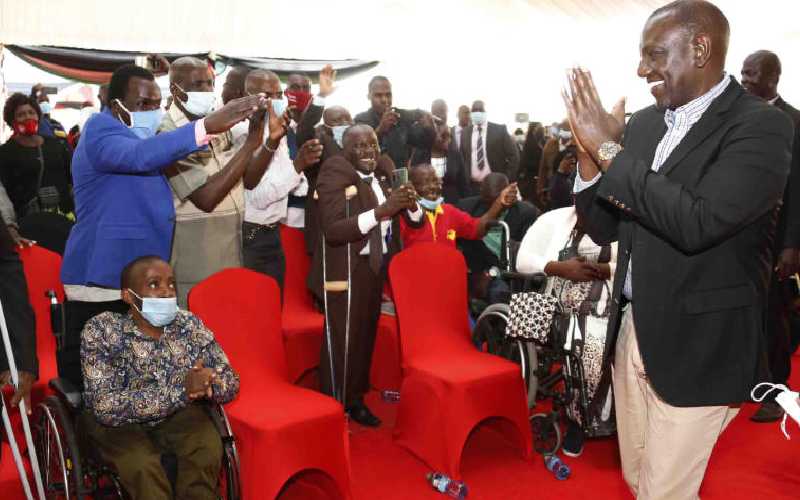×
The Standard e-Paper
Fearless, Trusted News

Deputy President William Ruto when he met persons living with disability at his Karen home in Nairobi. [DPPS]
The country’s top political leaders united in silence in the wake of an advisory by Chief Justice David Maraga that President Uhuru Kenyatta dissolves Parliament following its failure to enact the two-thirds gender rule.